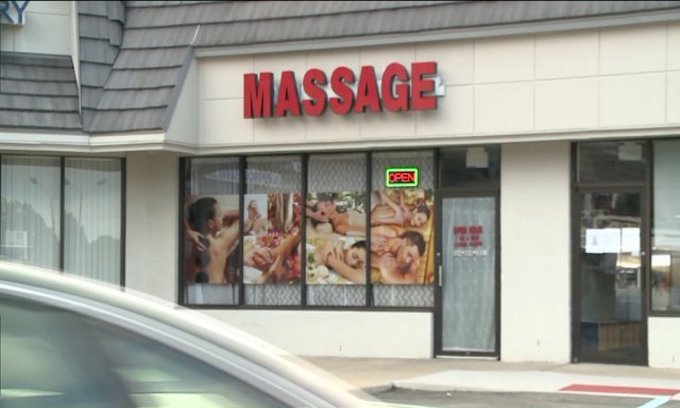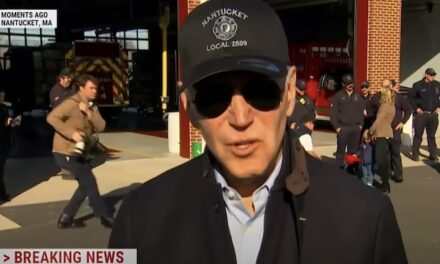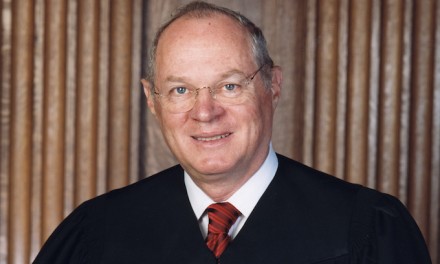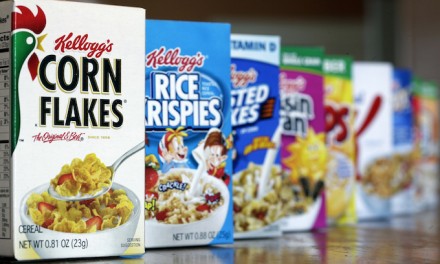In between the South Florida pizza parlors and convenience stores, there are massage parlors in strip malls everywhere.
It’s not exactly a postcard from West Palm Beach, but it is the image that people see as they pass by every day back and forth from work on many of the busy streets down here, without giving it much thought.
Until Friday, when the news broke that 77-year-old New England Patriots owner Robert Kraft was arrested on charges of soliciting a prostitute after he was twice videotaped in a sex act in a massage parlor in a shopping center in nearby Jupiter, according to police. Kraft denies any wrongdoing, according to a spokesman.
This was far more than simply catching a john. This was part of a huge crackdown on sex trafficking throughout south and central Florida. And once you get past the snickers, what police revealed about sex trafficking in these massage parlors is disturbing.
“These girls are there all day long, into the evening,” Vero Beach police chief David Currey told the news site TCPalm. “They can’t leave and they are performing sex acts. Some of them may tell us they’re OK, but they’re not.”
No they are not — and Kraft’s bizarre trips to the Orchards of Asia Day Spa may have sounded the alarm to a sex slavery problem that others have devoted their lives to stopping.
Like Kevin Malone.
No, not “The Office” character, but a name still familiar to baseball fans — former Major League Baseball general manager Kevin Malone, who is on a mission to save those enslaved in places like the massage parlor that allegedly serviced the rich, powerful NFL owner.
“Unfortunately, it takes something like a Robert Kraft or someone of celebrity status to get the attention on human trafficking that it deserves,” Malone said. “I feel bad for him, but it is raising the awareness across the country. Hopefully some good will come out of it.”
Many people still mistakenly think prostitution is a victimless crime,
“What I think most people think is prostitution is not a big deal, but most of the time we find that it is not a victimless crime,” Malone said. “In a lot of these so-called massage parlors that a lot of the women are not there by choice. They are being forced and coerced — especially in this situation, those women were enslaved. This is human trafficking.
“He might not have known that — I don’t know what he knew — but it highlights the problem.”
Malone, 61, was once an outspoken high-profile baseball executive who was general manager of the Montreal Expos from 1994 to 1995 and worked as an assistant general manager under Hall of Fame GM Pat Gillick with the Baltimore Orioles from 1996 to 1997. He would be hired for one of the most prominent management jobs in baseball when he was introduced in September 1998 as the Los Angeles Dodgers general manager.
Brash and competitive, Malone declared himself the “new sheriff in town” and brought in some high-priced free agents, like pitcher Kevin Brown and outfielders Gary Sheffield and Shawn Green. But those deals failed to translate to success on the field, and, after getting into an argument with a San Diego Padres fan who heckled Sheffield during a game in April 2001.
He left the game, and was involved in a number of ventures until 2009, when Malone — a devout Christian — accompanied his pastor and an organization called the Children’s Hunger Fund on a trip to Thailand. They spent some time with ZOE, an antihuman trafficking organization, and his life changed forever.
“I was at their safe home and they had 50 or 80 kids that they had rescued, brought from traffickers, and were taking care of them,” Malone said. I met a 4-year-old boy who had been sold as a sex slave. It broke my heart. When I got back to the United States, I found this was happening in America, but it was below the radar at that time.”
Malone is now president of the board of directors of the U.S. Institute Against Human Trafficking, an organization that tries to call attention to the problem, help communities fight against it and will assist sex slave victims. They opened the first safe home in the country in central Florida for boys trafficked between the ages of 10 to 17.
His focus is on young children, but is still very connected to adult sex-trafficking victims. “We find a lot of women in the sex business were trafficked or coerced when they were minors,” Malone said. “They stay in the industry because they don’t have an education, they don’t have job training, this is all they know, and it’s survival.
“I think this will help people wake up to this problem across the country,” he said. “We try to make people aware and prevent kids from getting caught up in it. We are finding that kids who have been in it for a while, maybe sold when they were 13 or 14, when they get to 18 or 20, they have no other options, and they get deeper into it.”
Ironically, at every Super Bowl of late — of which Kraft and his Patriots have been to 9 since 2001 — law enforcement and organizations who fight against human trafficking have used the event to try to sound the alarm to the media amassed there, but it never truly resonates.
Now human sex trafficking may have a face — six-time Super Bowl winning owner Robert Kraft.
• Hear Thom Loverro on 106.7 The Fan Wednesday afternoons and Saturday and Sunday mornings and on the Kevin Sheehan Show podcast every Tuesday and Thursday.
© Copyright (c) 2019 News World Communications, Inc.
—-
This content is published through a licensing agreement with Acquire Media using its NewsEdge technology.



















Recent Comments